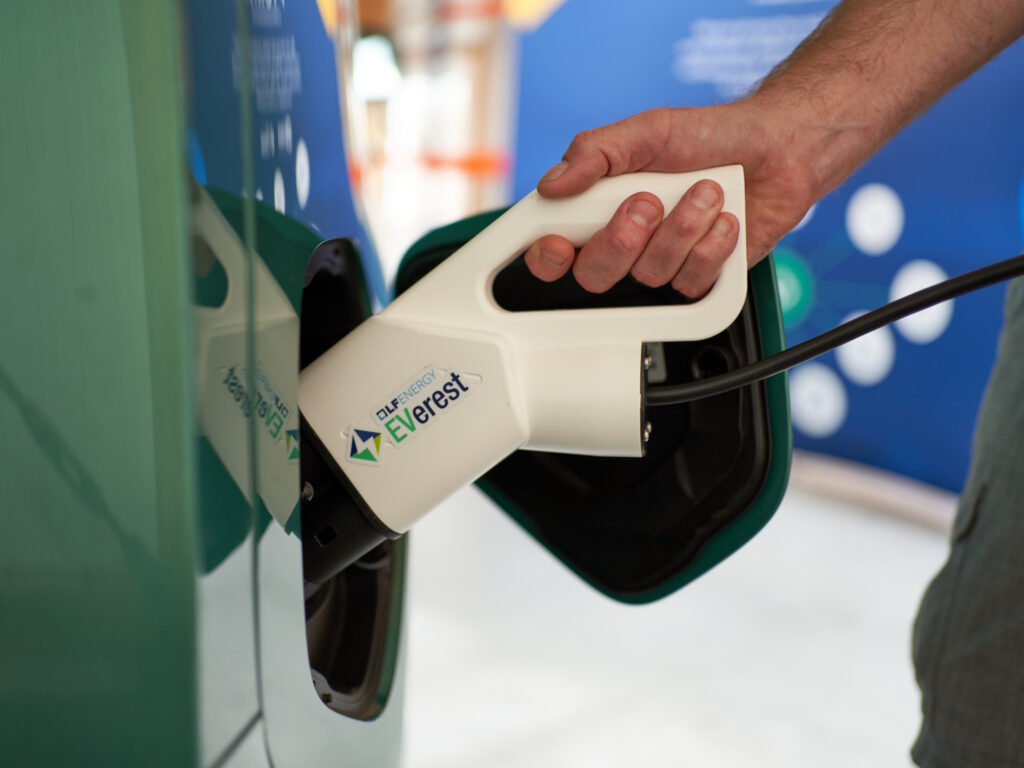Since 2021, Pionix has been combining electric mobility with open source, resulting in EVerest.
This is an open-source modular framework for setting up a full stack environment for electric vehicles charging. It is licensed under the industry-friendly Apache 2 License.

“This gives charging station manufacturers all the freedom to do with the code what they want“, said Marco Möller, CEO and co-founder of Pionix.
The company offers certified and expanded versions of the code under a commercial license that customers can buy, along with maintenance services.
Pionix already partnered with many companies to extend specific driver modules.
“To enable and support engineering in the best possible way, we additionally offer our own BelayBox, a developer friendly AC charger. It is the perfect starting point to easily try and extend EVerest”, stated the CEO.
The company focuses on implementation projects aimed at customizing and adapting EVerest for specific hardware.
“Why did we start EVerest? The reason is the current state of the EV charging ecosystem. It is characterized by individual patchwork solutions and a lack of standardization,” Möller noted.
This presents challenges, both for manufacturers and end users.
Manufacturers suffer a disproportionate burden in developing commodity software and in sorting out incompatibilities between EVs and chargers.
This lack of standardization and the management of multiple interfaces will become even more problematic to manage “by the ever-increasing growth-induced complexity”.
On their part, end users suffer from unreliable charging stations due to technical issues that can arise, complicating the charging or payment process.
To solve these issues, Pionix backs a standardized, holistic and freely accessible software stack that supports all relevant standards, norms and protocols (e.g. OCPP, ISO 15118, IEC-6185).
By using EVerest, all stakeholders can implement global charging standards in an easy manner.
EVerest is an official project of the Linux Foundation Energy, of which Pionix is a member.
LF Energy owns the project’s trademark and ensures fair and free access to the source code for everyone.
Security challenges in EV charging software

In the midst of the worldwide electric revolution, which includes a widespread deployment of EV charging points, one of the primary challenges is related to security.
According to projections, there will be a total of 12.9 million publicly available EV charging stations by 2030.
When a vehicle connects to the charger, thousands of data points, both operational and user payment-related, are exchanged.
During this process, all this data can be vulnerable to potential fraudulent activities. Consequently, software security plays a crucial role in eMobility.
Therefore, Trusted Computing Group (TCG) recently joined LF Energy project EVerest to create an end-to-end security reference architecture for the EV charging ecosystem.
TCG is a not-for-profit organization formed to develop, define and promote open, vendor-neutral, global industry specifications and standards, supportive of a hardware-based root of trust, for interoperable trusted computing platforms.
One of the reasons why TCG joined the project is that the group has recognized the lack of an EV charging industry security framework and the importance of providing a trustworthy platform for EVerest.
According to Möller, this collaboration will further boost the development of the EV charging industry to make it more innovative and above all more secure.
Pionix’s Next Steps
Recently, the company joined the “Inter-BDL” research project conducted by the University of Applied Sciences Ulm and the German Aerospace Center.
The project aims to find actionable solutions to balance energy between electric vehicles, the power grid and industry infrastructure, ensuring that energy is available when needed.
“Since its founding, Pionix has successfully developed and distributed applications for different component and charging station manufacturers, such as Mahle,” concluded Möller.








